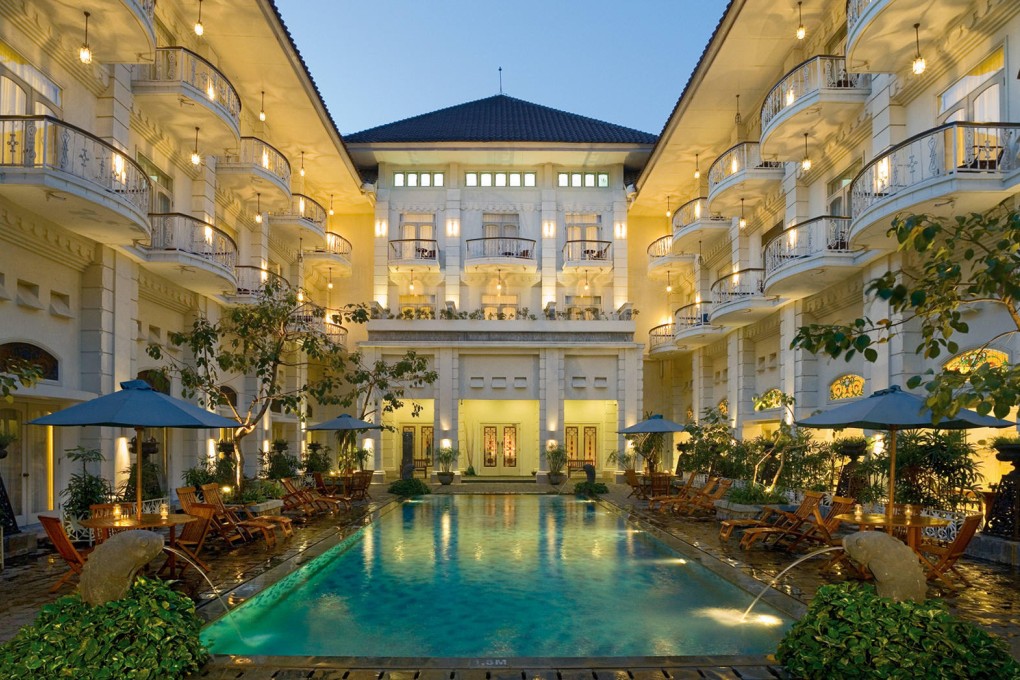
An iconic Dutch colonial-era hotel in the city of Yogyakarta, on the Indonesian island of Java, replete with the frangipani-scented elegance of a bygone era.
The Phoenix began life in 1918 as the home of Kwik Djoen Eng, a wealthy Chinese merchant. It operated as a hotel during the Great Depression and until the Japanese occupation began in 1942. After the second world war, it was used as the official residence of the Chinese consul before reverting to a hotel in 1951.
The architecture reflects the history of Yogyakarta and is influenced by Javanese and Chinese aesthetics. It features a colourfully tiled lobby and reception, an internal terrace with decorative wooden fretwork, stained-glass windows and a stone courtyard. Throughout the hotel, distinctly Chinese rosewood furniture and antiques sidle up to Javanese artwork and fabrics. The effect is whiff-of-the-past ambience meets Asian luxury.
The hotel has undergone a number of refurbishments. Recently, a wing was added, echoing the style and ambience of the old with a little more comfort. The hotel now boasts 144 rooms, including 10 suites and one room for disabled guests. Almost every room features a balcony; the best ones are made of wrought iron and overlook the pool (above). The spa offers age-old Javanese treatments alongside contemporary massages and pedicures.

The Phoenix is close to Malioboro Street, Yogyakarta's main thoroughfare, as well as attractions including the palace of the Yogyakarta Sultanate and Beringharjo market. A centre of classical Javanese art, puppet shows and theatre are popular here. Farther afield, the marvellous 12th-century temples of Borobudur and Prambanan are the area's main drawcard.